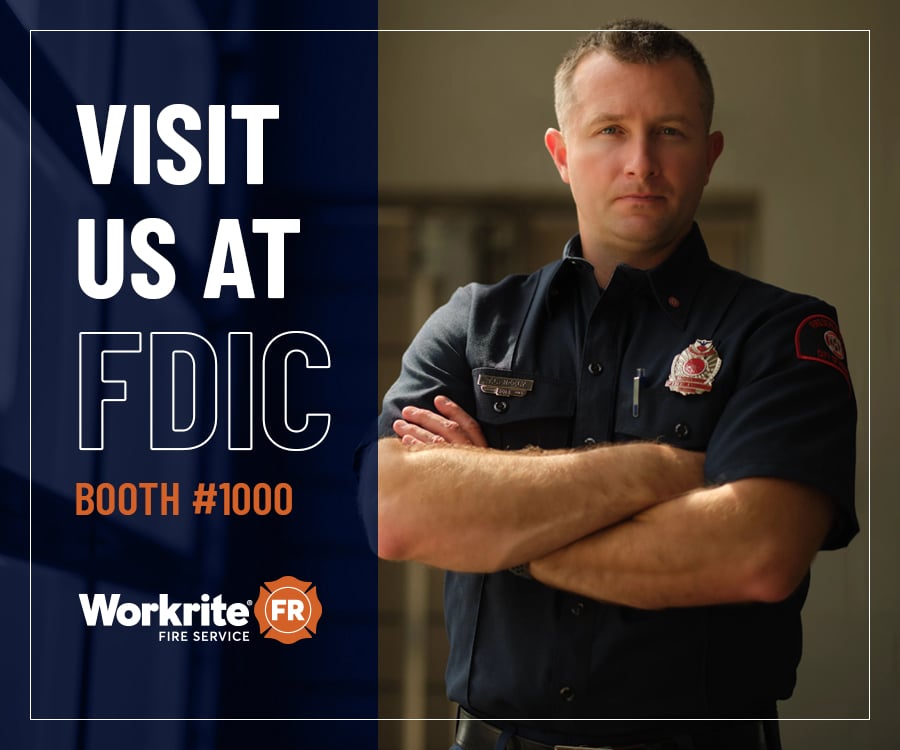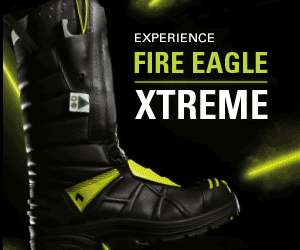Six Strategies to Develop an Athlete Mindset

By: Ryan Provencher – Executive Fitness Advisor for CRACKYL Magazine
As firefighters, we are tactical athletes in service of our communities. It is important that we develop a proper mindset to avoid injury, perform at the highest level possible, and ultimately retire healthy and happy after a productive and rewarding career.
Here are six strategies you may consider as you evaluate your athlete mindset and lifestyle:
Set Performance Goals
There are specific physical attributes that firefighters must be mindful of as athletes. Our work is often intense and dynamic in nature. Peak performance requires solid mobility, strength, power, and conditioning. Where do you want to get better? What will you need to improve? With focus on these questions, you will be ready to find a workout program to meet these goals.
Follow a Periodized Physical Training Plan
With so many arbitrary workouts available, how will you know which is right for you? With your specific performance goals in mind, it may be helpful to connect with a Peer Fitness Trainer or Coach to implement a well-planned workout program to meet your goals effectively and efficiently.
Use Food as Fuel and Hydrate Frequently
Nutrition and gut health are the building blocks for firefighter health and performance. It is important that firefighters eat whole foods and avoid processed foods and sugars. Whole food nutrition will help to support gut health, lower inflammation, optimize absorption of nutrients as well as immune system function.
Hydration is also essential for firefighter health and performance. Many times, we are mildly to moderately dehydrated when we begin our shift, and the nature of our work will lead to severe dehydration if we are not paying close attention. To ensure sufficient hydration, work up to drinking one half of your body weight in ounces of water each day. For example, a male weighing 180 lbs/82 kgs would drink 90 ounces of water, or a female weighing 140 lbs/64kgs would drink 70 ounces.
Prioritize Sleep and Recovery
Let’s face it, sleep deprivation and circadian rhythm disruption may be our biggest challenges related to shift work as firefighters. Sleep debt decreases cognitive and motor function just like alcohol intoxication. Sleep deprivation also decreases the ability of our bodies to fight off diseases, including cancer. We can’t control our sleep on shift, but we can utilize proactive strategies off shift to minimize the negative impacts of shift work on our overall wellness.
Active recovery is also critical in maintaining overall health and wellness. Low impact exercise modalities such as soft tissue work, yoga, joint mobility, and other restorative techniques go a long way to counter the intense physical, mental, and emotional demands of our job.
Be Proactive in Preparation
Modern day firefighters are required to have a comprehensive skill set to include firefighting, hazardous materials response, EMS, crisis intervention, and more. It is important that we take ownership of our knowledge, skills, and abilities so that we may operate safely, proficiently, and confidently in all that we do. What does that mean? Seek out specific training for skill confidence, frequently study important key concepts, visualize incident response, and practice breathing techniques that assist in stress management.
Be a Great Teammate
Firefighting is a “team sport”. To create cohesive, high-performance teams, we must develop an athlete’s mindset in the context of being a great teammate. One of the mantras that we share with recruits in Academy is, “I am here for we, and we are here for them”.
The more we invest individually to perform at a high level, the greater contribution we make to the team. The more cohesive the team, the better equipped we are to serve our communities.
Ryan is the Training Division Chief, Health/Safety Officer, and Wellness/Fitness Coordinator in his department, founder of Firefighter Peak Performance, and Executive Fitness Advisor for CRACKYL Magazine. He has a Bachelor of Science in Exercise Science with a minor in Nutrition from Washington State University. He has worked as a Volunteer Firefighter, Firefighter/EMT, Firefighter/Paramedic, and Company Officer before promoting to his current position. Ryan is grateful to combine his love for firefighting and physical fitness over his career of nearly 30 years. You can get in touch with Ryan by email [email protected].
Photo by: Alexander Redl
Podcast
Contests & Promotions
















